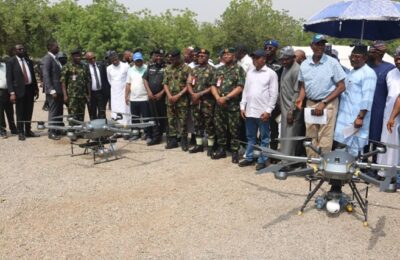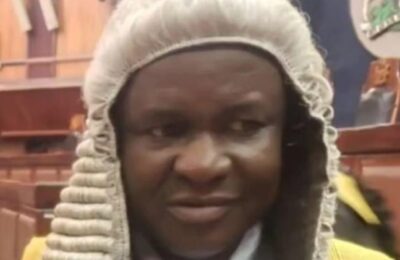In the complex theatre of Nigerian politics, loyalty often meets betrayal, and courage is tested by power. Murtala Yakubu Ajaka and the Politics of Betrayal: A Study in Loyalty, Power, and Conscience in Kogi State revisits the political odyssey of one of the founding figures of the All Progressives Congress (APC). It examines Ajaka’s unwavering contributions to the party’s rise, his pivotal role in Asiwaju Bola Ahmed Tinubu’s victory, the injustice that forced him out, and how his enduring popularity in Kogi East continues to redefine the moral balance of Kogi politics. This essay is both a historical record and a moral appeal to restore fairness, justice, and truth in the heart of Nigeria’s confluence state.
In the ever-evolving landscape of Nigerian politics, certain names echo beyond fleeting election cycles, not because of wealth or privilege, but because of vision, courage, and sacrifice for party and principle. One such name is His Excellency Alhaji Yakubu Murtala Ajaka, a man whose political journey embodies loyalty, betrayal, and the moral struggle for justice in Kogi State. Today, as the political winds shift across the nation, the story of Murtala Yakubu Ajaka is not just about one man’s fall from political grace; it is a mirror reflecting the conscience of Kogi politics and a question that demands the attention of President Bola Ahmed Tinubu.
Ajaka was not a latecomer or opportunist in the All Progressives Congress (APC). His commitment to progressive politics predates the APC itself. From the formative years of the Action Congress (AC), Ajaka played a pioneering role, serving as Deputy State Secretary of the now-defunct AC in the Federal Capital Territory (FCT) chapter and later as National Assembly Liaison Officer in 2006. When the ACN, ANPP, and CPC merged in 2013 to form the present APC, he was not a bystander. He was one of the coordinators who midwifed that delicate political merger. As the pioneer Head of Protocol of the APC, he was instrumental in establishing the organizational discipline and communication structure that became the backbone of the party’s national machinery.
Between 2014 and 2022, Ajaka’s profile continued to rise, not through political desperation, but through steady service and tangible results. As Special Assistant to the National Secretary in 2014, then as Special Adviser to the National Chairman in 2020, and later as Deputy National Publicity Secretary at the 2022 APC National Convention, Ajaka earned a reputation as one of the party’s most disciplined and effective strategists. His loyalty to the progressive cause was unquestionable, his relationships with key national figures cordial, and his commitment to President Tinubu’s vision unwavering.
When the 2023 presidential campaign began, few politicians in Kogi State matched Murtala Ajaka’s enthusiasm and sacrifice for the success of the APC and Asiwaju Bola Ahmed Tinubu. At a time when political survival dictated neutrality or silence, Ajaka stood firmly with Asiwaju. He donated 46 vehicles to Governor Yahaya Bello’s campaign network for Asiwaju’s presidential project, financed major grassroots mobilization drives, and deployed his influence in Kogi East to secure what became one of the most surprising and decisive wins for Tinubu in a region not traditionally favorable to the APC. That victory in Kogi East was no accident; it was the product of Ajaka’s deep grassroots engagement, years of relationship-building, and genuine credibility among the electorate.
Yet, no sooner had the presidential election been won than the seeds of betrayal began to germinate. After eight years in power, Governor Yahaya Bello sought to anoint his successor, not based on merit or equity, but from a narrow lens of personal loyalty and ethnic alignment. Bello handpicked his protégé, Usman Ododo, who hails from the same local government area as himself, to continue his political dynasty.
A crucial fact that must be clearly stated is the political injustice orchestrated against His Excellency, Alhaji Yakubu Murtala Ajaka, by the administration of Yahaya Bello. A kangaroo committee was deliberately constituted in Ajaka’s own ward under the governor’s directive, with the sole aim of suspending him from the APC. The committee carried out this assignment with calculated precision, culminating in the official announcement: “APC suspends NWC member, Murtala Yakubu Ajaka.”
This politically motivated action was not merely administrative; it was a humiliation designed to silence a man whose influence and credibility had grown beyond the governor’s control. The suspension marked a defining moment in Ajaka’s political journey, pushing him to seek refuge in the Social Democratic Party (SDP), where he could freely pursue his vision for justice, good governance, and the emancipation of the people of Kogi State.
Ajaka did not rebel out of spite; he reasoned, appealed, and urged Governor Bello to consider fairness, balance, and the broader unity of Kogi State. But Bello’s mind was made up. Faced with blatant injustice and the moral impossibility of endorsing it, Ajaka made the principled decision to leave the party he had helped build, demonstrating that integrity and courage outweigh loyalty to individuals when democracy and fairness are at stake.
The 2023 Kogi gubernatorial election that followed was one of the most controversial in the state’s history. Despite massive intimidation, structural bias, and administrative manipulation, Ajaka’s campaign ignited a political renaissance across Kogi East. From Ankpa to Dekina, Idah to Ofu, and down to Omala, the people saw in him a genuine alternative, a leader with history, vision, and courage. The turnout was overwhelming, the enthusiasm organic. When the votes were counted, Ajaka emerged as the people’s choice in several local governments, but the announced result told a different story.
The irregularities were not mere allegations. The Independent National Electoral Commission (INEC) itself acknowledged receiving credible reports of compromised election materials. In an official statement, the Commission said:
“Our attention has been drawn to a report that filled result sheets were discovered in some polling units in Kogi State.
The Commission views this situation seriously.
Our senior officials deployed to the State are currently investigating the incident(s). The Commission will communicate its decision earnestly.”
This admission by INEC underscored what many observers had already noted, that the integrity of the process in parts of Kogi was severely tainted.
Yet, beyond the numbers and legal battles lies a more profound political question: how did a man who gave so much to the APC, from its birth to its greatest national victory, become its casualty? The answer lies in the dangerous personalization of power that has plagued some state chapters of the APC, where loyalty to individuals now supersedes loyalty to party ideals. In Kogi, that pattern reached its peak under Yahaya Bello. Ajaka’s humiliation, from attempted suspension, political isolation, to orchestrated smear campaigns, was not only an attack on one man but on the very foundation of fairness and justice that President Tinubu has long preached as the soul of progressive politics.
Today, months after that contentious election, Ajaka remains unbroken and his influence undiminished. His stronghold in Kogi East stands as a fortress of political conscience, a reminder that truth and loyalty, though delayed, can never be defeated. The people who voted for him have not moved on. Across communities, his name still commands respect; his movement still inspires hope. This enduring strength is not a coincidence but a reflection of authenticity. In an era when many politicians depend on state power to remain relevant, Ajaka’s relevance flows from the people themselves.
For President Tinubu, who has always been known as a builder of men and a respecter of loyalty, the case of Murtala Yakubu Ajaka presents both a challenge and an opportunity. The challenge is moral: how to reconcile the injustice done to a loyal soldier without undermining party discipline. The opportunity is strategic: to rebuild the APC in Kogi State around fairness, inclusivity, and the genuine progressives who fought and bled for its survival. Ignoring Ajaka’s ordeal may sustain a temporary political calm, but it risks deepening disillusionment among the rank-and-file members who still believe that hard work and loyalty should count for something.
There can be no true reconciliation in Kogi without acknowledging the wrongs of the past. The Presidency and the APC national leadership must look beyond the surface and address the alienation of genuine party men who were sidelined for refusing to serve individual interests. Murtala Yakubu Ajaka represents not rebellion but resistance, resistance to impunity, imposition, and the death of internal democracy. His story is the conscience of Kogi politics, and perhaps the moral compass the APC must rediscover if it must remain credible in the state.
As the dust of the last election settles, one truth endures: the people’s love for Ajaka in Kogi East is not fading. It is rooted in gratitude, in shared struggle, and in faith that one day justice will prevail. Kogi State cannot afford to remain trapped in the politics of exclusion and entitlement. The Renewed Hope Agenda of President Bola Ahmed Tinubu must find its echo in Kogi, where hope was denied but not destroyed. Reconciling with Murtala Ajaka, not through token gestures but through genuine recognition of his role and relevance, will be a powerful statement that loyalty, service, and truth still matter in the APC.
For a man who helped build the party from scratch, fought for its victory, and paid the price of truth, Murtala Yakubu Ajaka remains a living testimony that betrayal does not end a political journey; it only refines it. His strength today is proof that conscience cannot be defeated by conspiracy. The unfinished story of Kogi’s political conscience still bears his name, and in its final chapter, history will vindicate him, not as a man who lost an election, but as one who refused to lose his integrity.
– Yusuf, M.A writes from Kogi state.




